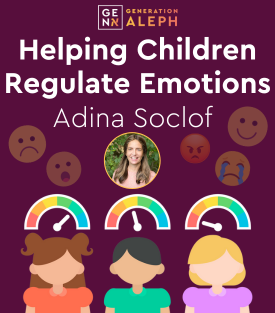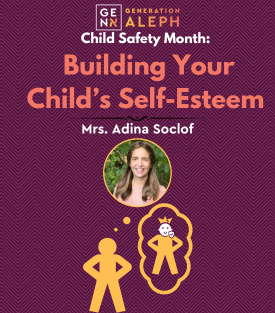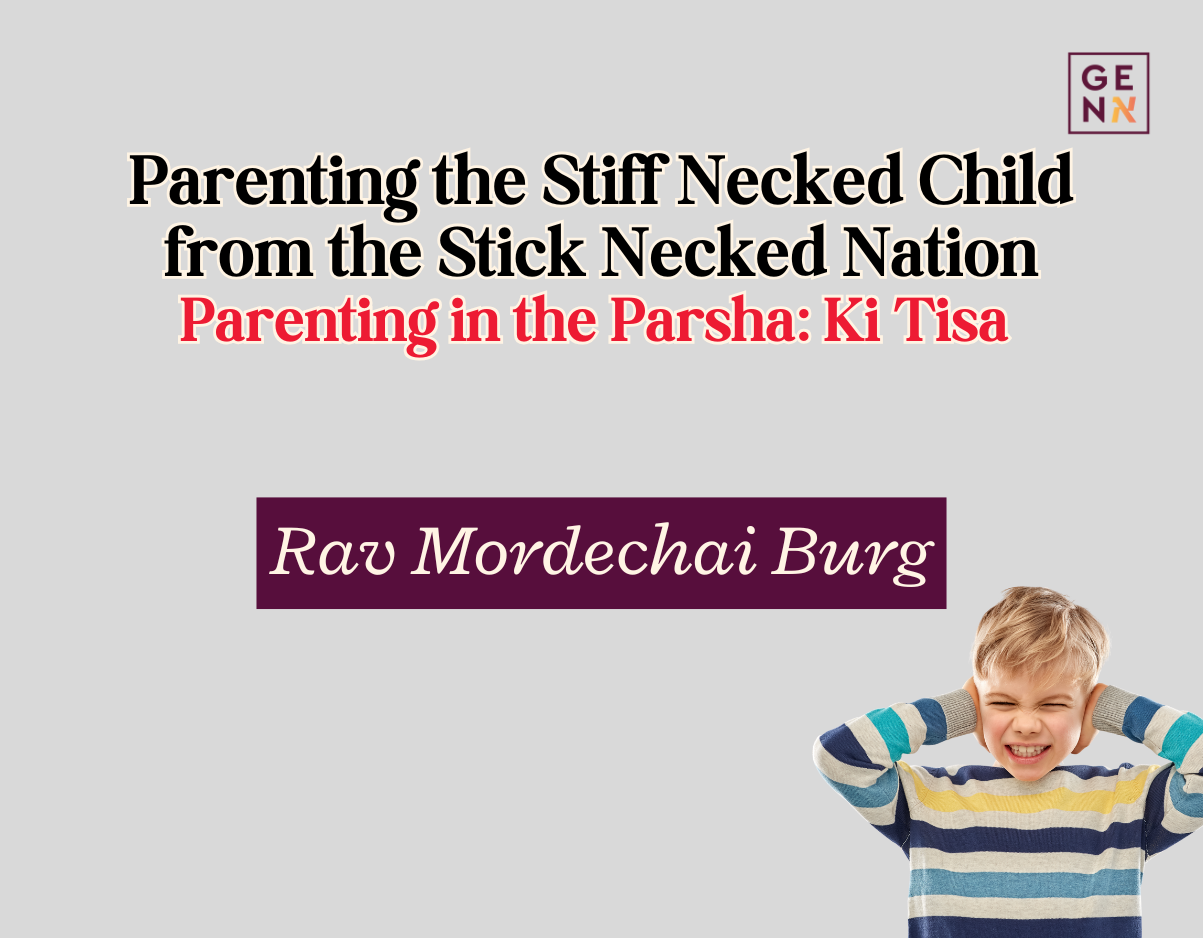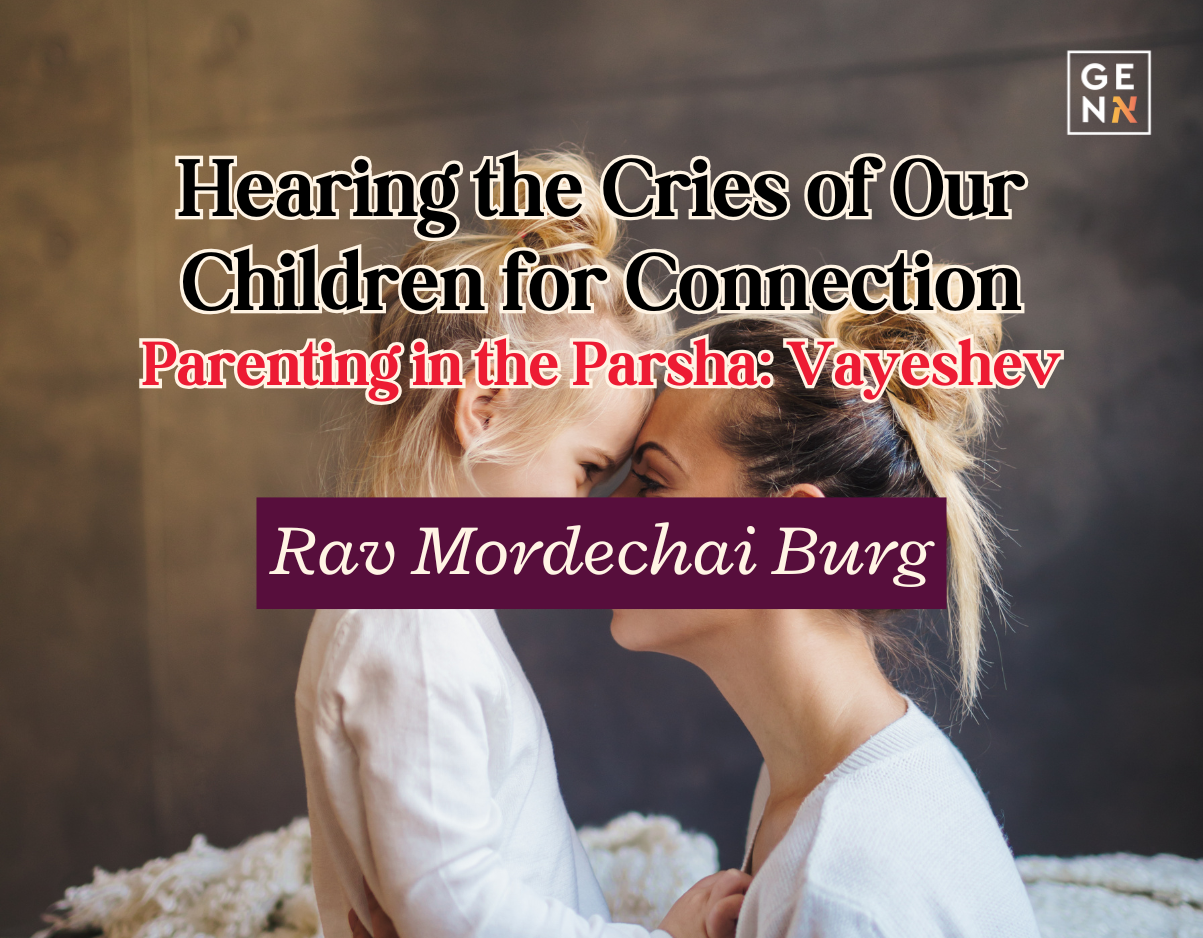When children break their legs or arms, it is usually what is known as a greenstick fracture. Their bones do not snap; rather, they bend. This is paralleled emotionally. Children are resilient, much more resilient than we adults are, if we would but give them credit for being so. They pick themselves up, brush themselves off and get on with life. They cry—and move on. They are upset and promptly forget what they were upset about, as though it never happened.
During the shivah for my late wife, I recall speaking to my son who was five at the time. I was concerned that he was not talking much about his mother. He was just getting on with life. Surely he was in denial?
Here was our conversation:
“How are you doing, Elkana?”
“Fine, Abba.”
“Are you sure?”
“Yes, Abba.”
“Do you miss Ima?”
“No, Abba.”
Long pause while I think how to get out of him that he must be very sad. . . . Okay, let’s try this one:
“Well, I’m very sad, Elkana, because I certainly miss Ima.”
“We have some videos of her Abba. Why don’t you just watch them?”
Okay, okay, shown up by a five-year-old. . . .
I came to the conclusion early on in our mourning process that kids forget and move on—as long as we don’t keep reminding them. My aim, in our home, was to find a balance. A love for Ima, a respect for Ima and most important of all, gratitude to Ima. All unnegotiable. Missing Ima—if you wish, you can join me in that. Pain that she’s gone—if you wish, you can join me in that too and we can cry together. Lostness, hopelessness, self-pity—unhelpful and we’re not going there.
Above all, I wanted to try to create a lighthearted feeling in the home. Life is good. The future is in front of us. We have so much to look forward to. Pain happens in life, challenge happens in life—there is no need to feel sorry for ourselves about that.
I learned for myself that when someone is alive, we have so many ways to love that person—spending time together, smiling at her, sharing a precious moment, a conversation. When that person is gone, all of those avenues of love get channeled into a single high road, the motorway of love—and that is pain. The pain of loss is the realignment of love. And personally, the three times I have lost someone precious in my life, I have welcomed that pain. And as time has gone on, it has settled and found its right and rightful place in my heart. If it were to go entirely, my connection to the person would be gone. And so, I embrace it. I am grateful for it . . . and to it.
With children, the challenge is the opposite. They don’t need help forgetting and moving on. They don’t need help allowing the pain to abate. If we are to help them—and sometimes we do better letting them find their own way—the help they might need is in how to remember, not how to forget.
I recall a client once telling me she thought her five-year-old was traumatized after being bitten by a dog.
“A five-year-old traumatized?” I asked. “How so?”
She told me the conversation she had with her daughter two weeks after the dog bite.
“Hi, Ruchi, are you feeling okay today?”
“Fine, Mommy.”
“Anything on your mind?”
“No, Mommy.”
“Are you sure?”
“Yes, Mommy.”
“Anything worrying you?”
“No, Mommy.”
“Are you worried about dogs?”
“No, Mommy.”
“Are you sure?”
“Should I be, Mommy?”
“Maybe?”
“Well, maybe I am then . . . .”
In our desire to help, we parents can sometimes, innocently, be so unhelpful.
I believe the role of parents during trauma is to nurture and support the natural resilience of their children. Hashem is their true support. We just need to step out of the way and allow Him to do His incredible job of healing.
Rabbi Shaul Rosenblatt is the director of Better World Charity in England. He is also the author of Why Bad Things DON’T Happen to Good People (New York, 2016), a semi-autobiographical book about understanding and facing challenging times. He recently published Mean What You Pray (New York, 2022), aimed at helping people pray the Amidah with more feeling.
Originally published in Jewish Action, the magazine of the Orthodox Union, Spring 2022
Submit your questions
"*" indicates required fields












